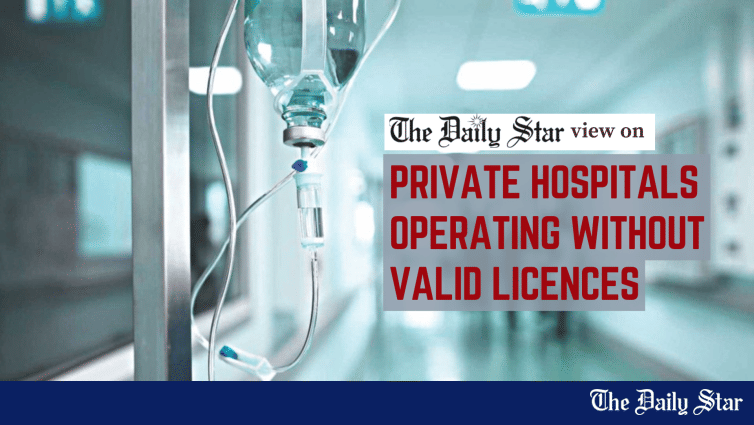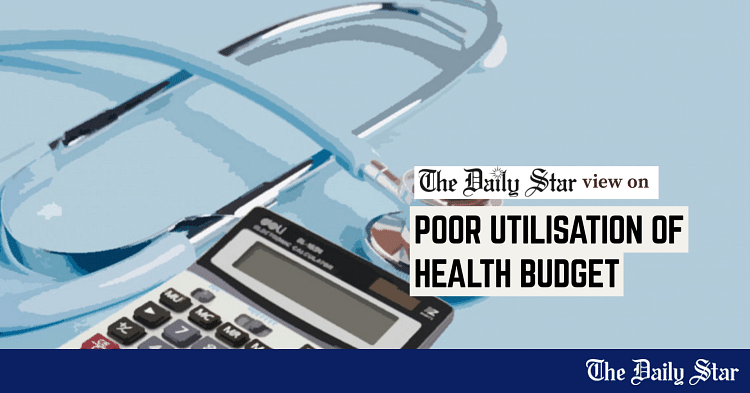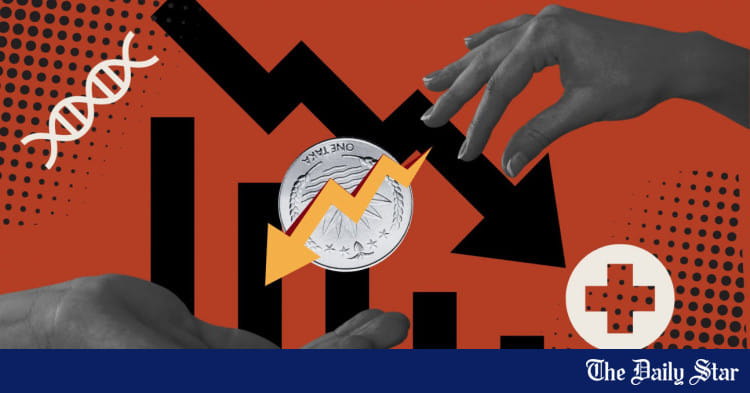Saif
Senior Member
- Joined
- Jan 24, 2024
- Messages
- 15,898
- Likes
- 7,990
- Nation

- Axis Group


Health commission gets it right but execution matters
The recommendations, as reported primarily in the print media, made by the Health Sector Reform Commission look radical and ambitious. But the sector needs such a reconstructive surgery rather than a cosmetic one to cure the system. One of the basic human rights is right to health but this is gross
Health commission gets it right but execution matters
FE
Published :
May 07, 2025 23:44
Updated :
May 07, 2025 23:44

The recommendations, as reported primarily in the print media, made by the Health Sector Reform Commission look radical and ambitious. But the sector needs such a reconstructive surgery rather than a cosmetic one to cure the system. One of the basic human rights is right to health but this is grossly undermined almost everywhere, only more so in countries like Bangladesh, because of the outrageous social disparities. So the health reform commission has done the right thing by recommending legal coverage for every citizen's primary healthcare irrespective of his/her social standing. Incorporation of such a legal provision will guarantee that no one is denied medical attention. But this cannot be implemented automatically unless the medical infrastructure and other allied paraphernalia are attuned to the proposed healthcare act. Happily, the commission has focused on such details meticulously in order to make the medical marvel happen in the country through gradual implementation of its suggestions.
The first bold step would be higher health allocation initially at 15 per cent of the national budget. On the infrastructure side, the union level health and family planning centres have to be transformed into primary healthcare centres. What about upazila health complexes? In urban areas, their counterparts would be established at the ward level. Clearly, the emphasis is to take healthcare to the doorsteps of people at the grassroots level. If the programme can be made effective, it will be decentralisation of healthcare at its very best. The referral system suggested by the commission will then screen the patients with various acute or complicated ailments to district-level hospitals which will have specialised healthcare arrangements. Will the upazila health complexes serve as referral points? But how the medical facilities at the district level will improve their healthcare system is critical. Medical colleges and universities have to be restructured, according to the suggestion, to make them aligned to the World Federation for Medical Education (WFME). For overall supervision a permanent body to be named as the Bangladesh Health Commission will be assigned the job.
In fact, the whole gamut of medical system has been brought under the scanner. Medicines will have to be prescribed under the generic names, 25 per cent of which immediately and the rest within next five years in order to end the anarchy in the pharmaceutical sector. Alongside, the hawkish promotional activities by medical representatives, as prevailing now, will be banned. Additionally, establishment of a separate facility to be named a National Institute of Women's Health has also been recommended.
Clearly, a comprehensive analysis of the problems facing the health sector has been made. But still a few things need to be clarified. There is no guideline of taming the vested interest quarters including the big pharmaceutical sharks and commercial private practice. Although higher remuneration and special financial benefits have been suggested, those are unlikely to match the income from private practice by senior medical consultants. Similarly, streamlining the operation of pharmaceutical industries may not be any easy job unless a political government has the motivation and determination to do so. Finally, underlying the health reform commission's exercise is a highly appreciable intent to transform the healthcare system by revolutionising the process of accessing at least primary medical treatment on an equal basis. But the next level of healthcare will still remain unreachable to the poor and low-income people. Yet if the system offers medical treatment on a par with that offered abroad where $4.0-5.0 billion is spent annually by Bangladesh patients, the money thus saved can be reinvested for free treatment of at least a certain percentage of the poor and vulnerable.
FE
Published :
May 07, 2025 23:44
Updated :
May 07, 2025 23:44
The recommendations, as reported primarily in the print media, made by the Health Sector Reform Commission look radical and ambitious. But the sector needs such a reconstructive surgery rather than a cosmetic one to cure the system. One of the basic human rights is right to health but this is grossly undermined almost everywhere, only more so in countries like Bangladesh, because of the outrageous social disparities. So the health reform commission has done the right thing by recommending legal coverage for every citizen's primary healthcare irrespective of his/her social standing. Incorporation of such a legal provision will guarantee that no one is denied medical attention. But this cannot be implemented automatically unless the medical infrastructure and other allied paraphernalia are attuned to the proposed healthcare act. Happily, the commission has focused on such details meticulously in order to make the medical marvel happen in the country through gradual implementation of its suggestions.
The first bold step would be higher health allocation initially at 15 per cent of the national budget. On the infrastructure side, the union level health and family planning centres have to be transformed into primary healthcare centres. What about upazila health complexes? In urban areas, their counterparts would be established at the ward level. Clearly, the emphasis is to take healthcare to the doorsteps of people at the grassroots level. If the programme can be made effective, it will be decentralisation of healthcare at its very best. The referral system suggested by the commission will then screen the patients with various acute or complicated ailments to district-level hospitals which will have specialised healthcare arrangements. Will the upazila health complexes serve as referral points? But how the medical facilities at the district level will improve their healthcare system is critical. Medical colleges and universities have to be restructured, according to the suggestion, to make them aligned to the World Federation for Medical Education (WFME). For overall supervision a permanent body to be named as the Bangladesh Health Commission will be assigned the job.
In fact, the whole gamut of medical system has been brought under the scanner. Medicines will have to be prescribed under the generic names, 25 per cent of which immediately and the rest within next five years in order to end the anarchy in the pharmaceutical sector. Alongside, the hawkish promotional activities by medical representatives, as prevailing now, will be banned. Additionally, establishment of a separate facility to be named a National Institute of Women's Health has also been recommended.
Clearly, a comprehensive analysis of the problems facing the health sector has been made. But still a few things need to be clarified. There is no guideline of taming the vested interest quarters including the big pharmaceutical sharks and commercial private practice. Although higher remuneration and special financial benefits have been suggested, those are unlikely to match the income from private practice by senior medical consultants. Similarly, streamlining the operation of pharmaceutical industries may not be any easy job unless a political government has the motivation and determination to do so. Finally, underlying the health reform commission's exercise is a highly appreciable intent to transform the healthcare system by revolutionising the process of accessing at least primary medical treatment on an equal basis. But the next level of healthcare will still remain unreachable to the poor and low-income people. Yet if the system offers medical treatment on a par with that offered abroad where $4.0-5.0 billion is spent annually by Bangladesh patients, the money thus saved can be reinvested for free treatment of at least a certain percentage of the poor and vulnerable.











































